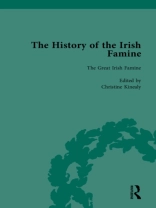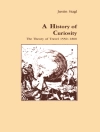The Great Irish Famine remains one of the most lethal famines in modern world history and a watershed moment in the development of modern Ireland – socially, politically, demographically and culturally. In the space of only four years, Ireland lost twenty-five per cent of its population as a consequence of starvation, disease and large-scale emigration. Certain aspects of the Famine remain contested and controversial, for example the issue of the British government’s culpability, proselytism, and the reception of emigrants. However, recent historiographical focus on this famine has overshadowed the impact of other periods of subsistence crisis, both before 1845 and after 1852.
This first volume addresses the questions: when did the famine begin and end; to what extent is the British government after 1846 culpable for the suffering and mortality; how important was philanthropy in alleviating the distress; what was the role and responsibility of Irish elites; is the word famine appropriate given that Ireland continued to export large amounts of food.












